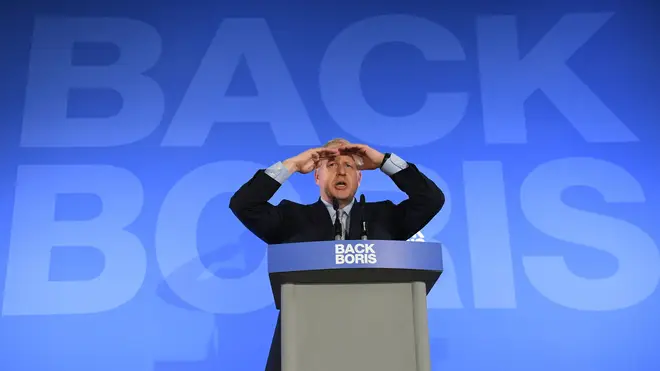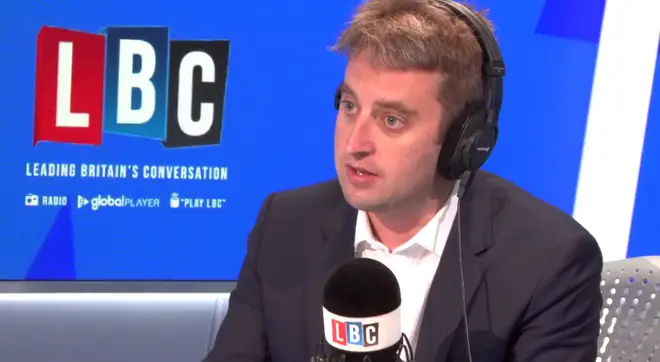
Nick Abbot 10pm - 1am
13 June 2019, 11:44 | Updated: 13 June 2019, 11:48

There's little chance of passing a Brexit deal and parliament says it will block no-deal. LBC's Political Editor Theo Usherwood explains why we're going to end up with an autumn General Election.
The question that is going to dominate the Conservative leadership campaign in the coming days, and probably weeks, is whether those who want to become Prime Minister are prepared to suspend Parliament in order to deliver a No Deal Brexit on October 31st.
The fairly safe assumption is that the European Union will not be prepared to alter the Withdrawal Agreement to such an extent so that it could pass through the House of Commons.
It is very difficult to see, given the Commission’s previous statements, how they would be prepared – or even able – to do so by October 31st, especially as the new Commission president does not start work until the day November 1st.
For Brexit supporters, their best hope of being seen to deliver on the 2016 referendum result, is a No Deal Brexit. But, as in April, Parliament has shown that it is willing to act to prevent that from happening. In the case of Theresa May, MPs told her to go back to Brussels and secure an extension.
To stop this from happening, a new Prime Minister could suspend Parliament forcing it into recess - proroguing. Whilst it is a nuclear option it is not, according to the Attorney-General Geoffrey Cox, illegal.
Last night, MPs attempted to take a first step towards preventing this from happening. Labour tabled a motion which would have allowed MPs to take control of the parliamentary timetable on June 25th.
That would have allowed MPs to bring forward legislation designed to prevent the incoming Prime Minister from suspending Parliament in order to force through a No Deal Brexit.
The Tory support was there for the motion to pass. But eight Labour MPs, mainly representing leave constituencies, voted against the idea, while another 13 abstained. And so it failed.

But perhaps the stand-out moment from yesterday was not the vote itself but when the remain Conservative MP Dominic Grieve stood up and said that if the Government was prepared to take the UK out of the European Union without a deal, he would be prepared to bring it down by voting against it in a vote of confidence.
That sentiment is one of the reasons why Boris Johnson spent much of his speech yesterday talking about his credentials as a winner against Labour. On this claim, his record speaks for itself. He won the London mayoralty twice in 2008 and 2012, defeating Ken Livingstone on both occasions.
His team knows all too well that if he is to keep his promise and deliver Brexit on October 31st, the only way to do that might well be to go back to the country and secure a decisive majority.
If that happened, any future attempt to stop a No Deal Brexit in Parliament would in all likelihood fail and Boris Johnson – with his new mandate – would be able to deliver a No Deal Brexit.
It is a strategy fraught with risk. The last time a Conservative PM went to the country to secure a decisive majority it ended very badly. The calculation for Tory MPs is whether with Boris Johnson at the helm, the outcome would be markedly different.